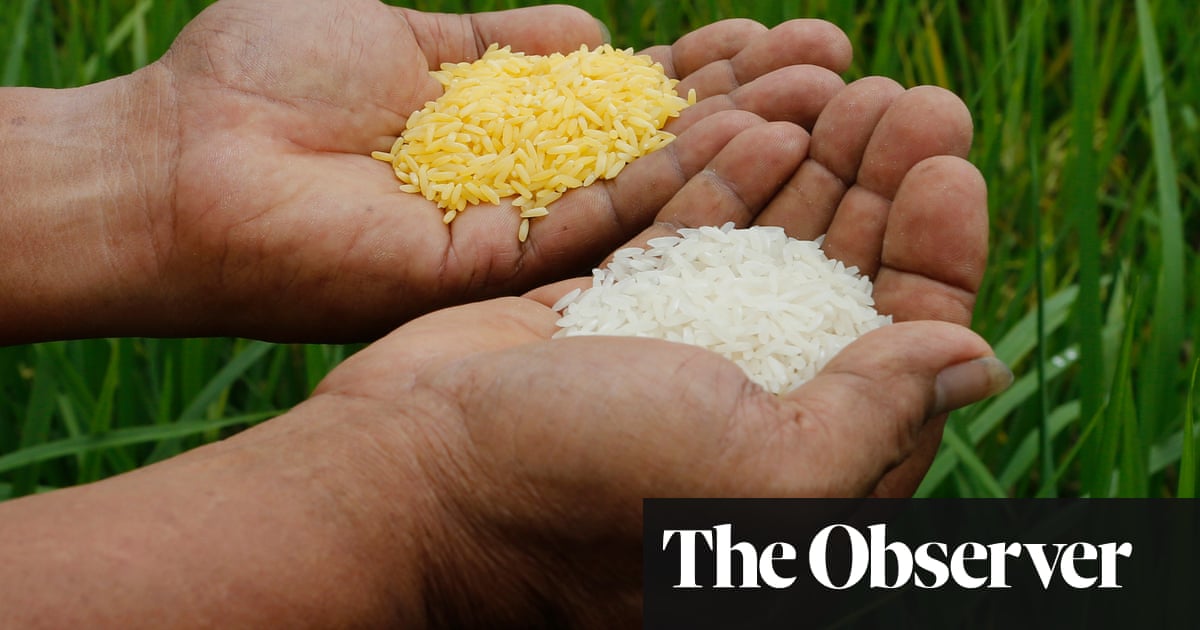Thousands of children could die after court backs campaign group over GM crop in Philippines, scientists warn
Scientists have warned that a court decision to block the growing of the genetically modified (GM) crop Golden Rice in the Philippines could have catastrophic consequences. Tens of thousands of children could die in the wake of the ruling, they argue.
The Philippines had become the first country – in 2021 – to approve the commercial cultivation of Golden Rice, which was developed to combat vitamin A deficiency, a major cause of disability and death among children in many parts of the world.
But campaigns by Greenpeace and local farmers last month persuaded the country’s court of appeal to overturn that approval and to revoke this. The groups had argued that Golden Rice had not been shown to be safe and the claim was backed by the court, a decision that was hailed as “a monumental win” by Greenpeace.
Many scientists, however, say there is no evidence that Golden Rice is in any way dangerous. More to the point, they argue that it is a lifesaver.



They’ve been doing that for two decades. Golden rice could have saved hundreds, if not thousands, of lives by now. Especially the later versions we’re on now. Hopefully it doesn’t violate the self-promotion rules for me to link an article I wrote a long, long time ago on Golden Rice 3.0 and its improved benefits.
I haven’t kept up with the project since, I wouldn’t be surprised if we’re on 4.0 or beyond by now, the scientists involved have been working tirelessly for years to make the rice even better and more beneficial for the people who need it.
And anti-science idiots like Greenpeace have been fighting them every step of the way.
Honestly, I’m a large proponent of conversation and environmentalism. Hell, I sit on a land trust board, and have a very strong technical background in checks notes environmental science.
The thing I keep rolling my eyes at with Greenpeace is their seemingly complete lack of regard for science, like you point out. How can anyone take these guys seriously when most of what they do are stunts.
I doubt anyone would listen even if they did have the technical expertise they need, because support for environmental issues is paltry to begin with. However, it would give them a leg to stand on.
Thing is, these guys have a very narrow view on “environment”, but the conflict here is emblematic of basically everything regarding protection of nature.
Greenpeace is under the (not completely unfounded) impression, that every new technology is a wedge to slowly push the world towards doom. Just one more lane. Just one more gene changed. And so on. They are completely uncompromising, which is understandable to a certain degree.
However, the result is that perfect is the enemy of the good. Here in Germany we have conflicts between people who want to save the planet by installing wind turbines and people who want to save the local fauna by not installing wind turbines. The latter do have a point if you’re very myopic, but they don’t (want to) see that their actions will likely kill the entire species, not just a few individuals.
Very well written and thoughtful response. This is a point I was going to make but was too tired to.
They can’t compromise, and that shoots the entire movement in the foot
If it’s been studied and proven safe, there shouldn’t be any room for Greenpeace to make their claims. They’re not a science authority. So what has been done to study its safety and why is anyone even listening to Greenpeace?
As the article points out, it’s not just a question of safety.
Their argument continues past that, but yes the court has sided with greenpeace because the of the potential economic losses and the availability of alternative solutions including other crops rich in vitamin A and the effectiveness of food distribution to combat malnutrition.
Greenpeace actively fearmongers with any and every conspiracy claim they can come up with on the subject. If you look at the reasoning they used in the OP article above and given to the Philippines, you’ll see that they never use any detailed claims, but always vague ones. They reference “safety concerns” without specification and without any consideration of the dozens of papers published on golden rice in the past two decades.
Serious question. If hundreds of lives were at stake, why were other mechanisms… such as just giving kids vitamin A, not apparently employed? Regardless of the merits of the opposition to this rice, why not pursue this on multiple fronts?
Other methods have been used in the meantime, for decades. But they are only so effective. Vitamins, other foods, and other methods have been in process. But they each have their own limitations, both on supply to remote areas and getting local peoples to take up those methods.
The latter is the biggest issue, especially with trying to introduce alternative foods like carrots. If they aren’t a part of the local cuisine, many of the individuals, who are often subsistence farmers who have limited land and only grow explicitly what they need to survive, aren’t interested.
Hence why golden rice was developed, because rice is a main part of the local diet in these areas and so it is much easier to get them to adopt growing a different cultivar of something they already eat than it is to convince them to grow a completely different food.
Thoughtful answer, thanks!